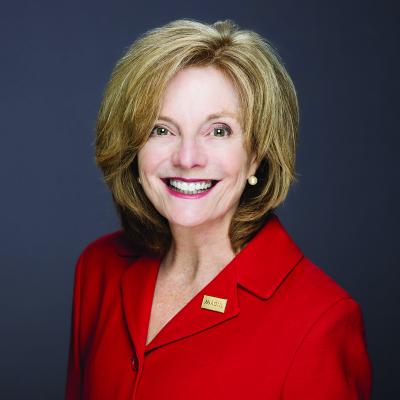
Voice of the President | Nov 2024

In the fast-paced realm of health care, the line between clinical practice and policy can often seem distant. Yet, legislative bodies are where decisions that impact the very core of our profession and community health are made — often without the input of those who are direct care providers. AONL is committed to bridging this gap through initiatives like our Advocacy Academy and the annual Advocacy Day, equipping nurse leaders with the skills and confidence to lend their voices where it matters most.
This month — when Americans will head to the polls — we highlight advocacy, which has long been an important part of my career. My foray into public policy began many years ago with a push for legislation on prescriptive authority, driven by the frustration I felt as a new nurse practitioner, unable to prescribe the necessary medications for my patients. I often found myself embarrassed, having to pause during every patient encounter to review my medication plan with a physician. This personal experience underscored the urgent need for change, not just for me but for all nurse practitioners striving to provide timely, comprehensive care. Scope of practice remains an important public policy issue for the nursing profession; we must continue to advocate for measures to ensure nurses can practice at the highest level of their education and ability.
Advances in technology, public pressure for improved clinical outcomes and the demand for new models of care have accelerated the need for nurses with advanced skills and knowledge to navigate a complex health care environment. Research published in 2003 demonstrated a clear correlation between higher levels of nurse education and improved patient outcomes. The following year, I joined colleagues in New York championing the BSN in 10 legislation, a milestone that took 13 years to be signed into law. It set a precedent nationwide, leading to an increase in RN to BSN programs and a commitment to creating a highly educated nursing workforce. Such initiatives were further supported by the 2010 Institute of Medicine report, The Future of Nursing: Leading Change, Advancing Health. The report recommended 80 percent of all RNs attain a BSN by 2020 and doubling the number of nurses pursuing doctorates. In addition, it urged regulatory bodies and institutions to assist nurses in practicing to the full extent of their licensure and training.
In more recent years, my advocacy efforts have focused on reimbursement for APRNs and RNs in ambulatory care, driven by the desire to enhance the profession and improve community health through strategic policy changes.
Nurses make up the largest component of the health care workforce, yet are underrepresented in elected office. Ohio State Rep. Rachel Baker details her voyage into politics, which serves as a powerful reminder of the necessity for clinically informed decision-making within legislative bodies. Baker notes her journey began amidst the COVID-19 pandemic, a period that exposed critical gaps in our health care system — gaps that could only be addressed through informed advocacy. Her story is inspiring, and it is also a call for us all to engage in public policy by running for office or to influence issues impacting our profession and our patients.
Another compelling narrative in this Voice edition is Rachel Culpepper’s advocacy journey, which underscores the importance of nurse leadership collaboration with lawmakers to address critical challenges such as workplace violence and funding for nurse education programs. Her efforts remind us that if nurses do not step up and become more involved in advocacy and public policy, decisions will continue to be made on our behalf by those with little understanding of clinical practice.
Vermont’s successful efforts to join the Interstate Nurse Licensure Compact, rooted in recommendations from the Vermont Act 82 of 2017, exemplifies how legislation can directly enhance nursing practice and health care accessibility, particularly in rural areas.
The formation of Healing Politics further underscores the emerging movement of nurses stepping into the political arena. Co-founder Lisa Summers emphasizes nursing’s unique position to effect change, given the profession’s deep understanding of patient care and the broader health care environment. We all have the potential to be the architects of the future.
For those who may feel daunted by the scale of national- or state-level policy work, it’s important to remember that advocacy can begin on a smaller scale. Nursing leaders can start by running for a school board, participating in community groups or joining local health committees. These grassroots efforts can build the confidence and experience needed to tackle larger policy challenges.
For many, the call to action is a personal one, but collectively we can make a difference. My advocacy experience has taught me when nurses join forces, we can successfully influence the policies that affect our profession and health of the communities we serve.
My advocacy experience has taught me when nurses join forces, we can successfully influence the policies that affect our profession and the health of the communities we serve.
Now is the time to recognize the need for greater involvement of nurses in politics. Whether you are driven by frustration from dealing with a fragmented health system or a desire to do more for the community, it’s time to step up and get out of your comfort zone.
Our expertise and knowledge are not just tools for patient care, they are the foundation for leadership in public policy. The AONL Advocacy Academy and Advocacy Day are your pathways to becoming a pivotal part of this essential dialogue. We should not shy away from the discomfort of the unfamiliar. Instead, let us embrace these opportunities, for within them lies our power to lead and enact meaningful change.

